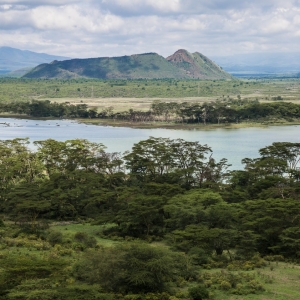The Stream, September 4, 2020: Researchers Gain Ground in Predicting Malaria Outbreaks
The Global Rundown
A new model will more accurately predict malaria outbreaks in Africa. A mine in Alaska spent tens of millions on water storage and discharge management disrupted by climate change. Around 30,000 tons of sewage sludge is being shipped to the UK’s agricultural industry. Tribal communities and environmental groups in the United States sue the EPA over proposed changes to a key environmental law. Tens of thousands are displaced or without power in Louisiana after Hurricane Laura.
“We have tens of thousands of our fellow Louisianans whose homes and business have been damaged or destroyed, their livelihoods have been impacted, and it’s a very, very tough situation.” – Louisiana Governor John Bel Edwards. More than 11,000 people are being sheltered by the state, in addition to the thousands of evacuees staying with friends and family or putting themselves up in other temporary locations. About 12 percent of utility customers in Louisiana remained without power on Tuesday and the governor said that the number of sheltered people tick upward daily. Nineteen deaths in Louisiana and Texas have been attributed to the storm. AP
In context: In Pandemic, New Thinking on Responding to Weather Disasters
Latest WaterNews from Circle of Blue
In Michigan, Rising Lake Levels Disturb Sacred Ground – Along Lake Michigan’s shores, rising waters are eroding Indigenous Odawa burial sites.
As Pandemic Amplifies Financial Stress for Water Utilities and Customers, North Carolina Governor Announces Financial Aid – State-ordered shutoff protections have expired, customer debt is rising, and some utilities face revenue shortfalls. Tens of millions of dollars in financial aid has been approved, but it may take weeks to arrive.
Hurricane Laura Critically Damages Louisiana Drinking Water Facilities – Nearly a week after the Category 4 storm, dozens of water systems are not operating, and about 20 suffered significant damage. It may be weeks before they are repaired.
Water Serves Length and Breadth of $1.9 Trillion Texas Economy – Across Texas, ties between water and the economy are revealed in innumerable places, in sturdy connections that bind the state together.
By The Numbers
$20 million The cost of an expenditure on water storage and discharge management that Teck Resources Ltd. said was forced by thawing permafrost linked to global warming. The company, which operates one of the world’s largest zinc mines in northwest Alaska, said permafrost thaw in the watershed surrounding Red Dog Mine is releasing higher natural levels of dissolved minerals and other particles into streams. The release limited the mine’s ability to discharge its treated wastewater into a nearby creek, causing water to back up in its tailing reservoir. The threshold the reservoir has to meet so Red Dog can discharge was never exceeded before the summer of 2019, which saw record high warmth. AP
30,000 tons The amount of sewage sludge containing human waste that is set to be imported to the UK from the Netherlands. The sludge is to be used on farmlands as fertilizer, although the Environment Agency—who permitted the sludge be shipped—issued a report in 2017 listing potential problems with the practice. Issues in the report included the presence of E. coli and salmonella, persistent organic pollutants, heavy metals and microplastics. UK law states that sewage sludge must be treated and then applied under strict regulations, although the Environment Agency has raised concerns that the regulations are not always followed. There are some benefits to using sewage on farmland, like reducing the use of mineral fertilizers and returning carbon to the soil, which can help meet carbon reduction targets. The Guardian
Science, Studies, and Reports
Scientists at the universities of Leeds and Lincoln in the United Kingdom developed a model to better map where outbreaks of Malaria are likely to occur in Africa, where 93 percent of all malaria cases are found. The new model more accurately accounts for water and moisture, and its evaporation, infiltration and flow through rivers. The scientists involved in the study said looking at rivers and the breeding grounds near them is important because Africa’s human populations rely so heavily on its rivers. Nature
On the Radar
A group of tribal communities and environmental activists sued the Trump administration on Tuesday over attempts to weaken water protections under the Clean Water Act. The Environmental Protection Agency (EPA) proposed rules that would limit the power of states and Tribes in decision-making on pipelines and other fossil fuel projects on their lands. Previously, states and Tribes had the authority to set parameters on federal projects, or reject them completely, that impacted waterways and wetlands within their borders. The group responsible for the lawsuit said they aim to block the EPA from “allowing dangerous levels of pollution that would harm the health of families.” The Independent
Jane is a Communications Associate for Circle of Blue. She writes The Stream and has covered domestic and international water issues for Circle of Blue. She is a recent graduate of Grand Valley State University, where she studied Multimedia Journalism and Women, Gender and Sexuality Studies. During her time at Grand Valley, she was the host of the Community Service Learning Center podcast Be the Change. Currently based in Grand Rapids, Michigan, Jane enjoys listening to music, reading and spending time outdoors.






Leave a Reply
Want to join the discussion?Feel free to contribute!